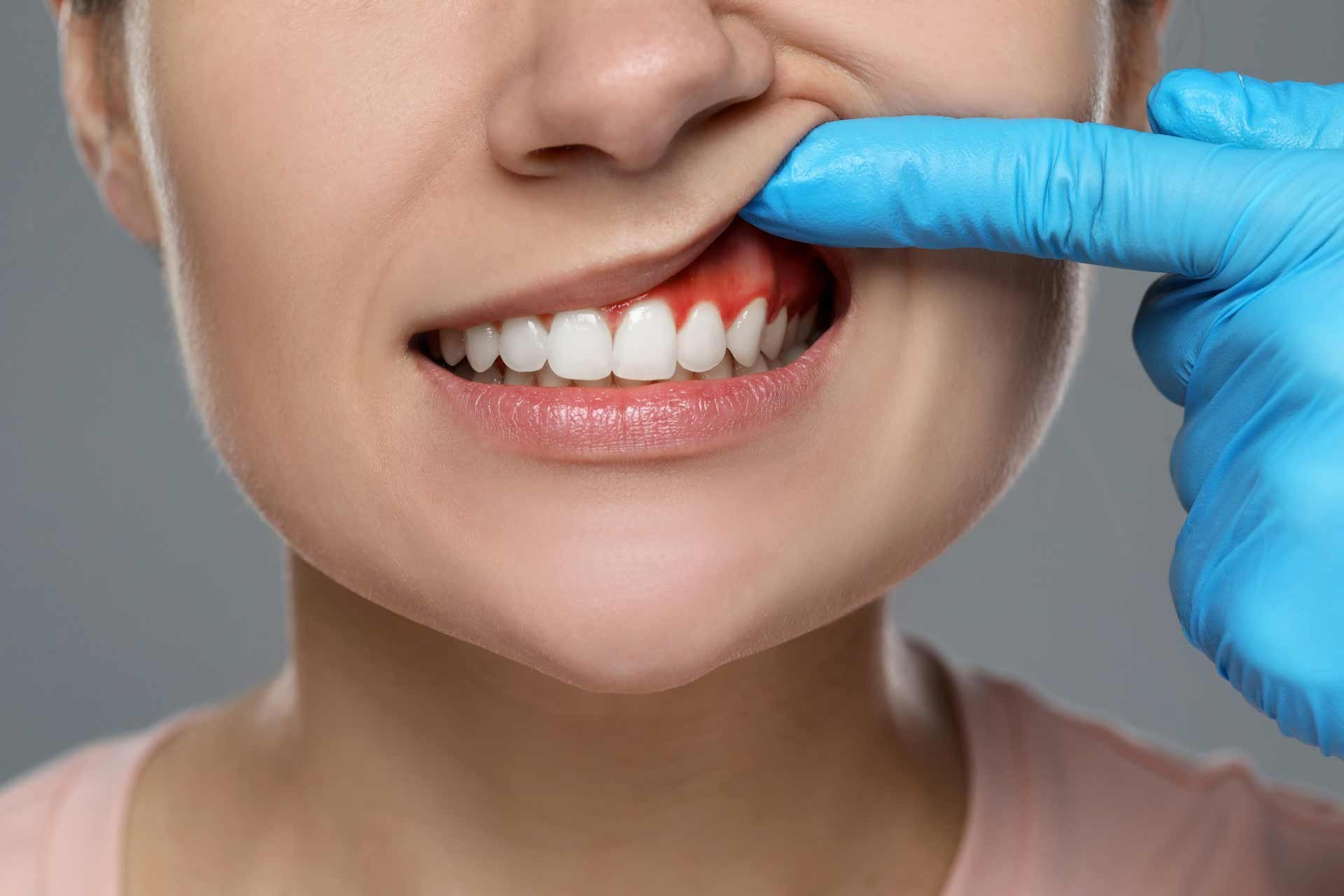Gum Disease Treatment at Home

Summarize with AI
What Is Gum Disease?
Gum disease, also known as periodontal disease, is a bacterial infection that affects the soft tissues surrounding and supporting your teeth. It begins when plaque, a sticky film of bacteria, builds up on teeth and gums, leading to inflammation and potential damage to the gum tissue and underlying bone structure. Symptoms include:
- Swollen, bleeding, or sore gums
- Pain when chewing
- Reddish or purplish gums
- Bad breath
- Unpleasant taste.
- Gum recession
- Loose teeth
Stages of Gum Disease
Gum disease progresses through distinct stages, each with its own set of symptoms and potential consequences. Understanding these stages is crucial for early detection and effective treatment. Regular dental check-ups and good oral hygiene practices are essential in preventing and managing gum disease at any stage.
Gingivitis
Gingivitis is the earliest stage of gum disease, characterized by red, swollen gums that may bleed easily during brushing or flossing. It's reversible with proper oral hygiene and professional cleaning.
Periodontitis
This stage begins with early bone loss and the formation of gum pockets as plaque hardens into tartar below the gum line. As it progresses to moderate and advanced stages, bone loss increases, gum pockets deepen, and gums may recede, causing teeth to become loose or shift position.
Preventing Gum Disease
Preventing gum disease is crucial for maintaining optimal oral health and overall well-being. By incorporating these preventive measures into your daily routine, you can significantly reduce your risk of developing periodontal issues:
- Brush thoroughly twice a day with fluoride toothpaste
- Floss regularly to remove plaque between teeth
- Use an antiseptic mouthwash to reduce bacteria
- Schedule regular dental check-ups and professional cleanings
Treatments for Gum Disease
Gum disease is a progressive condition, which means timely treatment is vital to preserving your oral health. The specific treatment plan will be tailored to your individual needs and the stage of gum disease. Depending on the severity of the condition, your dentist may recommend one or more of the following treatments:
Periodontal Cleanings And Exams
Routine dental cleanings remove plaque and tartar buildup. This preventive measure helps maintain gum health and can reverse early-stage gingivitis.
Scaling And Root Planing
A non-surgical procedure that thoroughly cleans the teeth both above and below the gum line. Scaling removes plaque, tartar, and stains while root planing smooths the root surfaces and removes bacteria.
Bone And Tissue Grafts
Grafting procedures help regenerate bone and gum tissue lost to periodontitis. They can improve the chances of saving teeth and restore a more natural appearance to your smile.
Laser Therapy
Laser treatments can remove infected gum tissue and kill bacteria in periodontal pockets. This minimally invasive option often results in less discomfort and faster healing than traditional surgery.
